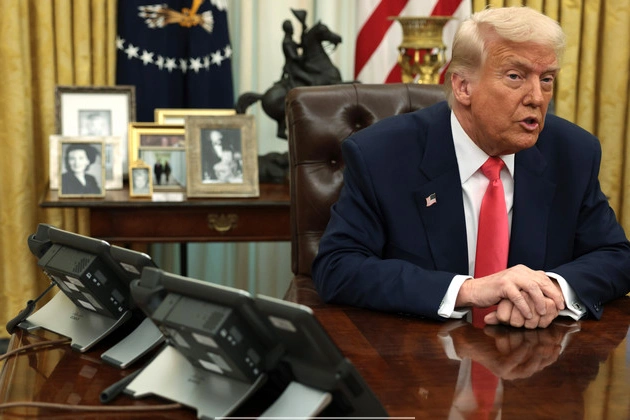
The Arizona prosecutors leading the legal case against some of President-elect Donald Trump’s key allies in the 2020 election subversion effort have recently obtained a substantial amount of their emails, texts, and phone records for review.
Court filings reveal that Attorney General Kris Mayes and her team secured search warrants several months ago to access data from the Google and Apple iCloud accounts of prominent Trump allies like Mark Meadows, Rudy Giuliani, John Eastman, and Boris Epshteyn. This data spans the period from Nov. 1, 2020, to Feb. 1, 2021.
Legal Dispute Over Data Review
Despite having access to this information, prosecutors are currently barred from analyzing it until each defendant has had the opportunity to review and exclude irrelevant content. Mark Meadows has already challenged the search warrant, arguing that it was overly intrusive and lacked evidence connecting him to the alleged conspiracy.
Arizona prosecutors continue to pursue one of the few remaining significant criminal cases stemming from Trump’s 2020 bid to retain power. A grand jury, convened by Mayes, indicted 18 individuals tied to the election scheme, naming Trump as a co-conspirator but opting against charging him at the prosecutors’ behest.
Legal Proceedings and Challenges
Legal proceedings faced a setback when Judge Bruce Cohen recused himself due to personal bias, leading to Judge Sam Myers taking over the case. Delays are expected in the legal process, potentially extending into 2026.
The ongoing legal battle over search warrants has shed light on the evidence Arizona plans to present against the Trump allies involved, including 11 Arizona Republicans falsely claiming to be legitimate electors.
Prosecutors issued multiple search warrants to tech companies for data related to the 18 defendants, requesting emails, texts, call records, contact lists, and geolocation data. The state received a substantial volume of data by September, initiating the process of sharing it with the defendants.
Challenges to Evidence and Legal Arguments
Mark Meadows challenged the evidence, alleging that the search warrant lacked specificity and resulted in the collection of extensive personal data. Prosecutors defended their actions, emphasizing the warrant’s relevance to the alleged crimes and the defendants’ ability to filter out irrelevant information.
Revealed details from the legal battle indicate internal discussions within the Trump camp regarding the election outcome and efforts to contest the results, despite acknowledging defeat. Meadows’ attempts to discredit the evidence based on vague assertions were countered by prosecutors’ claims of reliable sources corroborating the statements.
As the legal proceedings continue, the case underscores the complexities and controversies surrounding Trump’s 2020 election challenges and the legal consequences faced by his associates.















